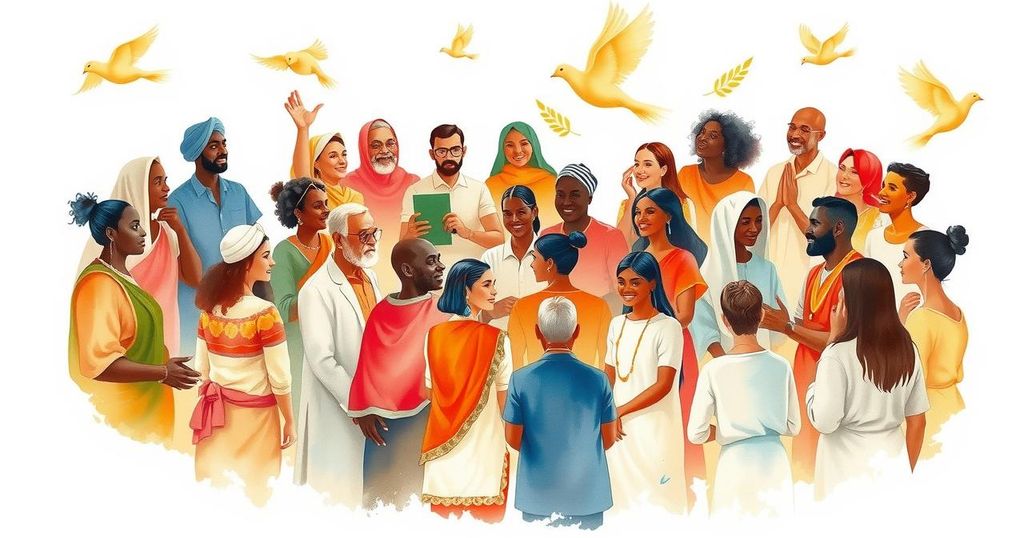Equatorial Guinea achieved independence on October 12, 1968, following a constitutional referendum. The country has experienced a turbulent political history, marked by the oppressive rule of its first president Francisco Macías Nguema and his successor Teodoro Obiang Nguema Mbasogo. Despite constitutional reforms and international scrutiny, allegations of electoral fraud and human rights abuses persist, culminating in Obiang’s recent reelection amid questions regarding the legitimacy of the electoral process.
The journey towards independence for Equatorial Guinea commenced at the conclusion of 1967, culminating in the proclamation of independence on October 12, 1968. Following the suspension of autonomous political authority by the Spanish government, a national referendum was held to ratify a new constitution, which overwhelmingly received approval on August 11 of that year, leading to parliamentary elections soon thereafter. The nascent republic was governed under the leadership of Prime Minister Manuela Roka Botey, with the capital established as Malabo. At the helm of the state was President Teodoro Obiang Nguema Mbasogo. The initial president, Francisco Macías Nguema, wielded significant power after his election in 1971, subsequently declaring himself president for life in 1972. His regime, marked by oppressive control over media and foreign travel, resulted in widespread arrests and human rights abuses, drawing condemnation from global leaders and organizations like Amnesty International. The tumultuous era saw a mass exodus of citizens, with neighboring Nigeria repatriating its nationals during this period. Macías Nguema was overthrown in 1979 by his nephew, Teodoro Obiang Nguema Mbasogo, who instituted a military-led government and introduced a less authoritarian constitution in 1982. However, subsequent elections were marred by allegations of fraud. Throughout the late 20th century, accusations emerged regarding a small cabal surrounding Obiang profiting from the nation’s burgeoning oil revenues, leading to continued international scrutiny of his administration. In 2011, constitutional reforms were approved by a substantial majority, affecting legislative structure and presidential term limits; however, many viewed these changes as a means of entrenching Obiang’s power. The credibility of subsequent elections remained questionable, as irregularities and electoral fraud were persistently reported. Despite accolades for abolishing the death penalty in 2022 and hosting the Africa Cup of Nations in 2015, the political landscape of Equatorial Guinea continued to evolve amid criticism of the regime’s human rights record and electoral practices. The most recent election in November 2022 further called into question the democratic legitimacy of President Obiang’s administration, as he was reelected amidst allegations of coercion and electoral malpractice. As of the latest estimates, the population of Equatorial Guinea stands at approximately 1,669,000.
Equatorial Guinea, a small Central African nation, gained independence from Spain on October 12, 1968. Its political history has been largely shaped by its leaders, particularly during the reign of Francisco Macías Nguema, whose authoritarian rule led to significant human rights violations and mass emigration. Following his overthrow, Teodoro Obiang Nguema Mbasogo took control and has since dominated the political landscape, maintaining power through various constitutional amendments and alleged electoral fraud. The country’s economy is substantially influenced by oil revenues, which have contributed to both wealth for some and pervasive corruption. International scrutiny surrounding human rights abuses and electoral integrity has persisted throughout Obiang’s tenure, reflecting a contentious political environment.
In summary, Equatorial Guinea’s journey from independence to its current political climate is marked by a history of autocracy, human rights abuses, and economic challenges rooted in oil wealth. Despite attempts at reform and constitutional change, President Teodoro Obiang Nguema Mbasogo has retained a firm grip on power, characterized by electoral irregularities and widespread allegations of corruption. The international community continues to monitor the situation, as many hope for a transformation towards a more democratic governance in the future.
Original Source: www.britannica.com




